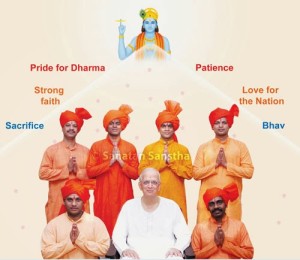The right-wing organisation Sanatan Sanstha and anti-superstition activists in Maharashtra were fighting it out in courts before their confrontation took a bloody turn with the murder of rationalists Narendra Dabholkar and Govind Pansare.
After the arrest of Sanstha member Sameer Gaikwad for the Pansare murder, questions are again being asked about the activities of the organisation, which was linked to the bomb blasts in Thane and Margao.
The bulk of litigation is in the High Court in Mumbai and Goa and several other courts in the two States. Much of it is a slew of defamation cases filed by the Sanstha against publications, journalists, editors and activists, including Dabholkar and Pansare.
“We have filed around 15 defamation cases against various people in Mumbai and Goa. Some of them are for media articles comparing us to terrorists and alleging that we give arms training,” advocate and Sanstha member Sanjeev Punalekar, who represented the accused in the 2008 Thane blast case, told The Hindu.
A common tactic
Critics of the Sanstha say the outfit has persistently been filing defamation cases to harass its opponents. “They have filed about 11 cases against me for my writings. In some cases, we won, some are pending. Sometimes, they file a criminal case as well as a civil suit on the same issue,” says Rahul Thorat, who wrote for the anti-superstition publication Andha-shraddha Nirmulan Vartapatra (ANV).
In fact, the Sanstha’s common tactic is to file cases outside the base of a publication or reporter, on the ground that a particular article was read elsewhere. “Public cases can be filed from anywhere. This is a legal lacuna,” says Mr. Punalekar. This lacuna can frustrate anyone.
“Even if you have to spend your own money and are made to travel to courts where complaints have been filed, that is enough of a nuisance. Winning or losing the case is secondary. Sometimes, if the organisation feels that the court may not rule in its favour, it will withdraw the case,” says Vijay Rokade, whose petition for a ban on the organisation is pending in the Bombay High Court.
In a 2009 order related to an article in the Thane and Raigad-based daily Janadesh, the Bombay High Court in Goa upheld a magistrate’s order and said: “A well-wisher of the petitioner sent a copy [of the publication] to the petitioner. This does not amount to either publication or circulation of a defamatory article and the conclusion that the magistrate at Ponda [in Goa] has no jurisdiction cannot be faulted.”
Intimidation
Asim Sarode, a Pune advocate who briefly represented journalists in a defamation case involving the Marathi magazine Chitralekha, has alleged that Sanstha members used intimidating tactics against defendants and their lawyers. “The ‘sadhaks’ gather outside court premises, they laugh at you, taunt you and even threaten you saying ‘We know where you stay.’ I experienced this when I was appearing in the Goa court. I used to change my route while travelling to Goa and avoided the Ponda mountain pass.”
Though the Sanstha denied this charge, Mr. Sarode wrote to the Maharashtra Home Department early this year seeking protection.
http://www.thehindu.com/news/national/for-sanatan-sanstha-defamationis-a-tool-to-weigh-down-opponents/article7695125.ece

Leave a Reply